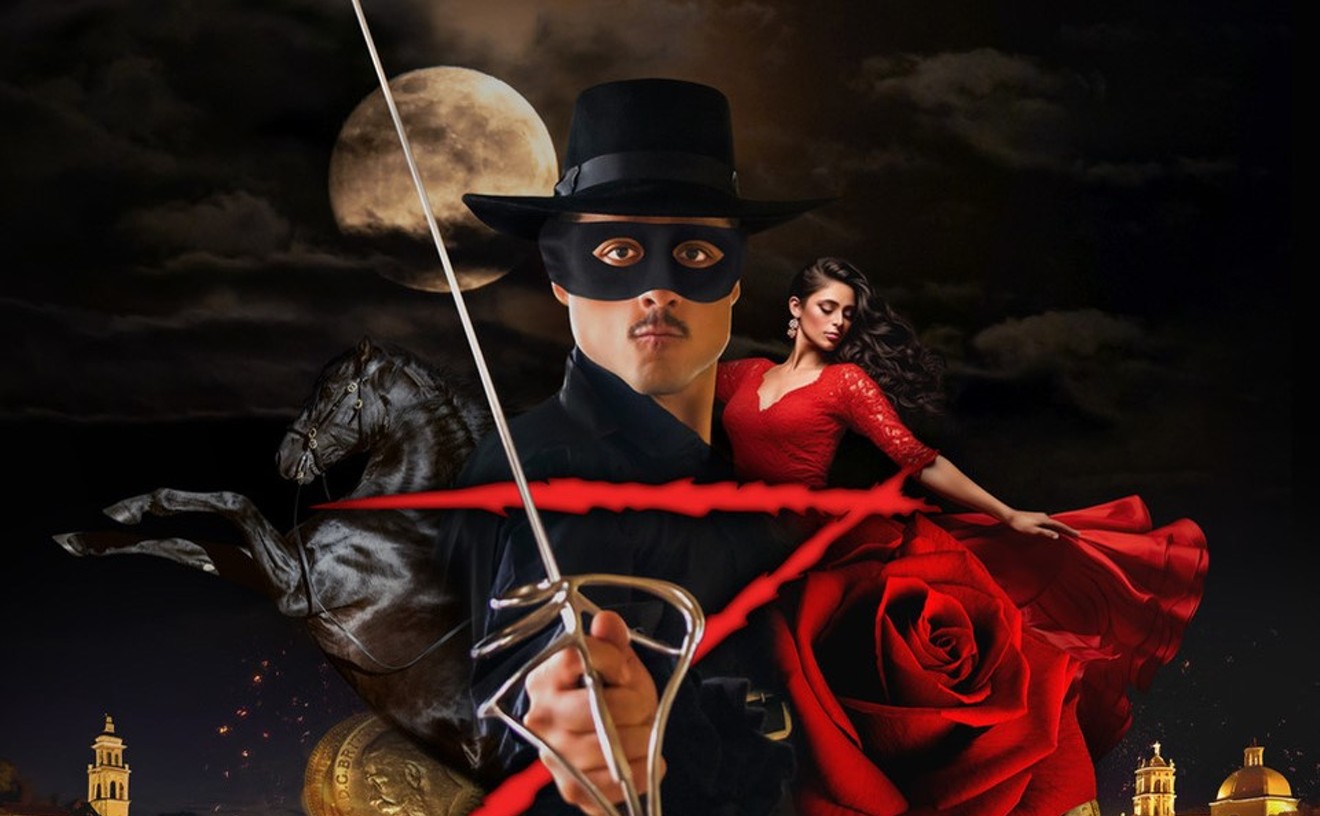If you're not in school, there's no real downside to "misinterpreting" a work of art. Curtains thinks that if you're enlightened (or just plain entertained) by a book or song, then that's part of the art that happened.
Many artists not only don't care exactly how you respond, they're bemused by critics who extract huge themes they didn't have in mind at the time.
Of course, some artists do intend to suggest a philosophy or life lesson with their works. Eerie, stylized short stories are particularly susceptible to heavy inference, and their intentions are often apparent. (Shirley Jackson's "The Lottery" comes to mind.) Franz Kafka wrote almost nothing but such parables, and his "In the Penal Colony" blasts open just about every assumption anyone might have about justice and punishment. (Unless, you know, it doesn't, in which case it's still creepy as all hell.)
Christian Krauspe, a master's candidate at ASU who also helped generate the post-apocalyptic storybook world of And What She Found There, has expanded Kafka's tale into the two-act play In the Penal Colony. Krauspe's done a fine job of adding elements that make a fascinating stage drama without noticeably distorting the original's tone and effect.
Director Kyle Lewis is fortunate to have the blazingly talented Lee Margaret Hanson as the Traveler, here filling in for both the narrator and the reader, as the bizarre "apparatus" of execution is explained and demonstrated. Hanson ably keeps the whole production under her thumb while revealing a vulnerability (which I do wish Krauspe had left more of a mystery) that helps draw us in.
Penal Colony is staged in a round arena constructed in the cavernous backstage of the Galvin Playhouse, complete with blinding lights, large video screens, and two banks of steeply raked seats facing one another, along with an industrial-style catwalk that terminates in an old-fashioned "emperor at the Coliseum"-type balcony.
This cool conceit, designed by Jeannie Beirne (who's helmed several of my favorite sets in recent seasons), makes the audience part of the nameless, faceless masses who are alternately threatened and served by the colony's unusual judicial system. Maci Hosler's costumes, a bunch of lovingly executed bondage-y, Russian-influenced, quasi-military coats with a sci-fi gloss, add color and texture to the bare stage and class up the young actors in a big way.
Masks are used in tandem with physical and vocal effects to bend and heighten reality at significant moments. I not only love that, but it's a great relief from some of the mask work we have to sit through in other shows, which generally only states "Our performers have to double a lot, and oh, yeah, masks are dramatic and kewl." However, I've had enough Daryl-Hannah-in-Blade-Runner eye makeup to last me a lifetime, and it didn't seem to add anything here.
Another grad student, festina lente's Joya Scott, is presenting her final directing project in the same space, alternating performances with Colony. It's Brit po-mo powerhouse Caryl Churchill's The Skriker, and it's a lot to bite off, for both the company and the audience.
The self-described "ancient fairy" of the title takes her name from a whiny, shapeshifting spirit of legend, often appearing in the form of a black English dog that likes to haunt travelers and will bring you misfortune whether you ignore it or attack it. Which is kind of awesome but also, perhaps, too much like some aspects of real life.
Churchill's Skriker, kept in the supernatural underworld too long by civilization's secular, practical-minded bent, seems especially fond of tormenting young mothers in this particular story. She's post-partum depression incarnate, and like a bad roommate or neighbor, she'll appear however she needs to in order to win you over and then turn on you like a snake.
Sara Schwabe has to have worked really hard to create her portrayal of the Skriker. Not that her effort is ham-fistedly apparent -- she is a pleasure to watch -- it's just that the task set by the playwright is gargantuan. Schwabe opens the show with a free-associative, partially gibberish monologue (Churchill plays with language in brainy, yet effective ways) that she renders almost easy to follow. It's a tour de force, but you'll be grateful later when most of the script turns out to be in simpler English.
There's so damn much going on here that the scenes with human beings and a sofa or barstool are kind of a relief. Scott is a fine director and made many choices that work (and her designer's masks, BTW, don't aspire to be more than rad costume pieces). For most Americans, though (and for intellectually average people in general), to see this show as more than an avalanche of pretentious hurl with a lot of interesting moments would require a chief less reverent and more ruthless, as far as I could tell.
By the end, cognitive fatigue had set in, robbing me of any feelings about the resolution. And maybe that's the point -- but I wanted to tip you off, in any case. The Skriker is very theatrical in a way that is not for everybody. Don't miss it if your gut feeling is, "Ooh, Caryl Churchill's The Skriker -- I can't miss that!" or "Gotta see Joya's project!" or even "I love weird, confusing stuff full of unidentified furries!" Otherwise, gather what information you can, and decide for yourself.
What I've dubbed The Festival of No Easy Answers continues through Sunday, April 23, at Paul V. Galvin Playhouse at 10th and Myrtle Streets on the ASU Tempe campus. Admission ranges from $8 to $23 per show. Click here for tickets to The Skriker. The remaining performance of In the Penal Colony is sold out online; call 480-965-6447 for more info.











